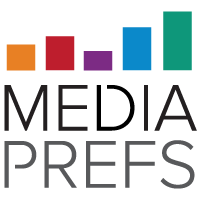This year, Interact Communications surveyed more than 20,000 students from 51 community and technical colleges across 21 states. They told us a lot about their media preferences, offering valuable insight into how they prefer to connect with you and what motivates them. This included gathering some specific insights from students who were taking online classes. Based on what these online students shared, here are some tips to better reach and engage your new and growing online population.
Pay attention to your portal and make the most of email.

The majority of your students are multitasking on multiple devices, and this is especially true for online students. They have a higher number of connected devices and more email accounts. They rely heavily on your student portal for most types of college communication. They’re slightly more open to receiving messages through their personal email accounts. And, they not only check their personal and college email accounts more frequently, but they also read those emails more thoroughly.
Make these channels as student-friendly as possible.

So, what can you do to make these channels more helpful to your online students? First of all, assess your student portal. How easy is it for students to access the tools and services they need? Conduct an online survey and focus groups to gather student feedback about your portal and how to make it hum for them, especially as they are separated from on-campus connections and support. Be sure they can easily navigate it for online advising, registering for classes, paying fees, buying textbooks, and more. While you’re at it, check your website for the same level of accessibility and friendliness to ensure prospective online students can also find what they need in a snap.
Involve faculty and advisors in personalized email outreach.

In terms of email, consider how you are using this relied-upon communication channel to engage your online students. Be friendly. Be encouraging. And be sure to send this e-support not just from the “college,” but also directly from faculty and advisors. Your students want to hear from their faculty and advisors. Ghostwrite personalized email messages for your faculty and advisors to send. These can offer helpful tips and encouragement about online faculty hours, online tutoring, and online advising. It would also be smart to conduct an audit of email communications going out from different academic and student support offices across your college. Look at who’s sending what when. Review the timing, flow, and content from the student perspective. It’s time to de-clutter and be thoughtful in your approach and delivery. This includes editing those “administrivia” emails that tend to bark procedures and deadlines.
Integrate “just-in-time” nuggets of support across all media.

Your planning should go beyond email, however, as you integrate just-in-time messaging across multiple media channels to let students know you have their back and are here to help them stay on track. This includes using your social media to post motivational quotes, blogs, and videos. Remember, many of your students may not have much support or guidance at home. They’re counting on you for that. And since online students express feeling more isolated or out of touch, it’s critical to reach out to them via multiple outreach channels, including phone calls and texts. Now is the time to collaborate with colleagues across your college, including academic and student life leaders, to come up with new and better ways to replicate what makes your in-person experience so valuable. How can you virtually impact their non-academic experience, extracurricular and athletics, leadership, and social opportunities? (Stay tuned for more on this, as Interact will be hosting an upcoming webinar devoted to ways you can build community online!)
Wrap them in a virtual hug.

All of your students need constant encouragement to persist. But those who have been out of school the longest, who are taking classes part-time, and who are taking classes online need even more proactive support to stay the course. In fact, nearly 80 percent of students taking in-person classes indicate their college encourages them to persist, while less than 70 percent of online students feel the same love. That number is especially low, just 63 percent, for students in their 40s taking online classes. So, think about how you can wrap them in the same level of support as if they stopped in to see you on campus. It may require a little imagination on your part, but, hey, your students are worth it.

We hope this gives you some good food for thought as you grapple with reimagining your persistence communications for students who’ve had to move online and for those who decide to stay online even after campuses reopen.
And, if you would like to gather more detailed insights into the media preferences and behaviors of your students, consider subscribing to the Fall 2020 Media Prefs survey. If you’d like a demo or free trial, contact Jamie Wagner, Interact’s executive director of Media Prefs. Jamie can answer your questions and help you take advantage of this research on your campus!
Need help conducting a communications audit or developing an integrated communications plan for recruitment or retention? Contact us at info@interactcom.com. We can help!



